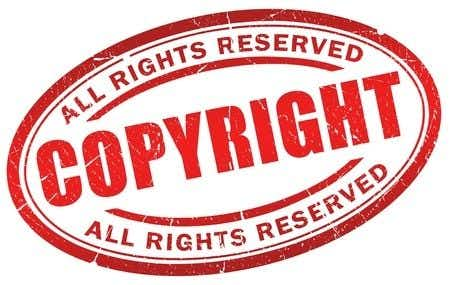A copyright expert witness advises on a case involving an individual who had a textile product with a registered design. It alleges that the defendant has offered and continues to offer a similar textile product with the same design. The plaintiff alleges that at no time has it allowed defendant to copy or modify the registered design or to distribute or sell such unlawfully copied or modified works. The defendant’s sale of the product displaying the registered design has caused monetary and non-monetary damages, the plaintiff alleges. Further, the defendant’s owner directed and participated in the copyright infringement at issue by leading a committee that selected the product for sale and distribution, and directed the company to continue selling it after receiving notice of the infringement from the plaintiff. The plaintiff alleges the owner directly profited from sale of the violating product.
The plaintiff filed one claim of copyright infringement.
Question(s) For Expert Witness
1. Should the patent have been registered?
2. Why or why not?
Expert Witness Response
The general counsel of the U.S. Copyright Office sent a letter to the defendant’s attorney. In it, the counsel explained the decision of the Copyright Office to register plaintiff's line drawings of the holes and stitching of the product, despite two earlier refusals to register. I should note at the outset that I very rarely disagree with the conclusions of the Copyright Office on its decisions to register or not to register. In this case, however, I do, respectfully, disagree.
First, it is important to note that the Copyright Office only registers a claim to copyright. Unlike the Patent and Trademark Office, which grants patents, the Copyright Office does not grant copyrights. It is for the courts to determine whether or not the registered claim is indeed proper. A registration certificate constitutes prima facie evidence of the validity of the plaintiff's claim to copyright and of the facts stated in the certificate. Even so, the evidentiary value of a registration certificate is limited, especially in this case, where the certificate would not have issued had the plaintiff fully disclosed its prior attempt at registration of the same work, which the Office had refused to register. In any case, the presumption of validity can be rebutted, and it frequently is. Despite the normal deference to the expert agency, the courts often disagree with and reverse the conclusions of the Copyright Office. If the defendant offers credible evidence, or new materials that the Office did not possess when it made its decision on registration, or a persuasive legal analysis showing why the work as a whole is not eligible for copyright protection, Of that the specific part of the work that is allegedly infringed is not eligible for copyright protection, then the burden of proof shifts back to the plaintiff. If the plaintiff fails to convince the judge or the jury that the work (or portion of the work) is eligible for copyright protection, notwithstanding the registration, then the copyright claim necessarily fails.
I conclude that placement of the perforations that form the design is tied to functional needs rather than aesthetic judgments, and it is therefore not separable or copyrightable. Plaintiff chose not to follow established procedures and did not appeal the refusal to register to the Review Board. Instead, it made an end run around the regular procedure, and, in doing so, misled the Copyright Office as to what it was really trying to register. If plaintiff had disclosed the two prior refusals at the outset of the second attempt to register the pattern of the holes, the new application would almost certainly have been assigned to the original Registration Specialist, who almost certainly, despite the new deposit, would have refused registration again because of the de minimis originality.
The expert is a former employee of the Copyright Office and is a prolific lecturer and writer on subjects of patents and intellectual property. He has taught copyright law for nearly 20 years and advises the government on copyright law.
About the author
Kristin Casler
Kristin Casler is a seasoned legal writer and journalist with an extensive background in litigation news coverage. For 17 years, she served as the editor for LexisNexis Mealey’s litigation news monitor, a role that positioned her at the forefront of reporting on pivotal legal developments. Her expertise includes covering cases related to the Supreme Court's expert admissibility ruling in Daubert v. Merrell Dow Pharmaceuticals Inc., a critical area in both civil and criminal litigation concerning the challenges of 'junk science' testimony.
Kristin's work primarily involves reporting on a diverse range of legal subjects, with particular emphasis on cases in asbestos litigation, insurance, personal injury, antitrust, mortgage lending, and testimony issues in conviction cases. Her contributions as a journalist have been instrumental in providing in-depth, informed analysis on the evolving landscape of these complex legal areas. Her ability to dissect and communicate intricate legal proceedings and rulings makes her a valuable resource in the legal journalism field.



